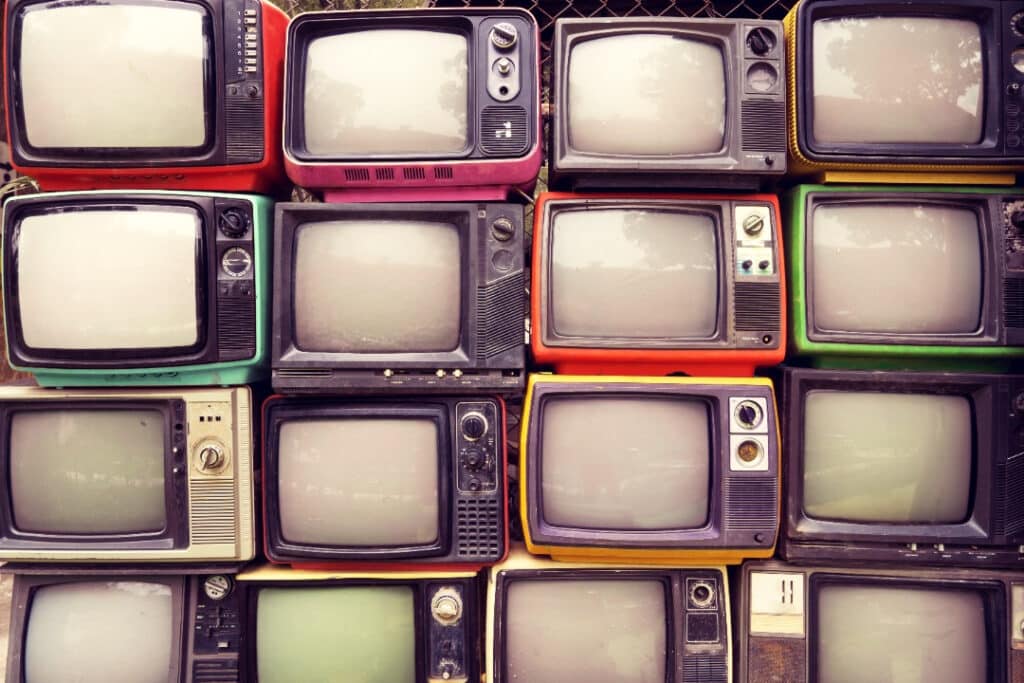Every day we are bombarded by the media. It’s a significant part of our lives, and there is no escaping that fact. Unfortunately, the media greatly influences people’s attitudes and beliefs, and it is partly responsible for how the public views eating disorders and the people they affect. This representation of eating disorders demonstrates a lack of understanding, is often negative and inaccurate, and contributes to stigma.
The Media and False Representations of Eating Disorders
A major stereotype adding to stigma is one frequently used by films and television series: if you suffer from an eating disorder, you’re underweight, white, adolescent, and female. The truth is eating disorders affect people of all ages, genders, ethnicities, and sizes. Black teenagers are 50% more likely to suffer from bulimia than white teenagers. Teens from various backgrounds—Asian, Black, white, and Hispanic—all report having engaged in weight loss attempts. This stereotyping by the media does a huge disservice to people of color, whose symptoms of eating disorders are rarely acknowledged or addressed by health care providers compared to Caucasians.
The film industry is also guilty of glamorizing eating disorders, portraying them as a lifestyle choice or something to admire. Hollywood has even carelessly referenced eating disorder behaviors for comedic effect. None of this represents the reality that an eating disorder is a serious mental illness.
Social media is doing its damage, too. People are heavily influenced by the content they view on different social media platforms. The use of filters and photoshop can make people highly critical of themselves and is damaging to their self-image. Even though much of what is seen on social media is not reality, it still has a profound negative influence.
What is the Impact of Media Representations on Eating Disorder Recovery?
Stigmatization has a severely damaging effect on the psychological well-being and recovery of individuals suffering from eating disorders. Repeated exposure to negative attitudes and messages from the media can cause people who suffer from eating disorders to self-stigmatize. This stigmatization leads to lowered self-esteem and social isolation. People who experience stigmatization are not only more reluctant to seek professional help but also have a harder time sticking with treatment. The consequences of stigma include the following:
- Hopelessness
- Guilt
- Shame
- Isolation
- Poor self-esteem
- Increased eating disorder symptoms
- Delayed recovery
How Can We Create a More Positive and Supportive Media Environment for Those in Recovery?
Little by little, the media is adopting a body-positive view and becoming more sensitive to the mental health needs of society. Movies and television series now often include trigger warnings if the content may be sensitive to some viewers. This warning allows the viewer the opportunity to protect themselves from content that may be damaging to them. The media must expand its responsibility to create content intended to increase awareness of eating disorders and provide accurate information.
We can’t control the messages we are fed by the media, but we can control how we experience and process them. We have to become experts at recognizing and navigating our way around what’s real and meaningful and what’s false and damaging in the media.
Ways to Take Control and Make a Change Now
- Limit how much time you spend on social media platforms.
- Be selective. Use the time you do spend engaging in media on quality content.
- Be critical of what you view in the media, and express your disapproval of what you’re being exposed to and why you think it’s wrong.
- Filter out the diet-focused or other triggering ads. Remove them from your social media feed, and don’t hesitate to report them as inappropriate if they are triggering to you.
- Develop your media literacy; think critically about the messages you see in the media, and create your own content. Use media as an outlet for self-expression. Your positive message can reach and inspire others.
- Reach out for help. At the Toledo Center for Eating Disorders, our team of highly trained professionals can help you navigate the negative information you may encounter in the media and help you find the right treatment program. Call us at 855-385-4877 or fill out our contact form to get the support you need for you or your loved one.
Resources
Brelet, L., Flaudias, V., Désert, M., Guillaume, S., Llorca, P.M., & Boirie, Y. (2021, August 18). “Stigmatization toward People with Anorexia Nervosa, Bulimia Nervosa, and Binge Eating Disorder: A Scoping Review.” Nutrients, 13(8), 2834. https://www.ncbi.nlm.nih.gov/pmc/articles/PMC8400545/
National Eating Disorders Association. (2022). MEDIA & EATING DISORDERS. https://www.nationaleatingdisorders.org/media-eating-disorders
National Eating Disorders Association. (2022). PEOPLE OF COLOR AND EATING DISORDERS. https://www.nationaleatingdisorders.org/people-color-and-eating-disorders
Author Bio:
Kate Delaney Chen, BSN, RN-BC is a healthcare writer and registered nurse with over 17 years of bedside experience. She specializes in Psychiatric Nursing and Nephrology and currently works at a nationally recognized inpatient Eating Disorders Program.

